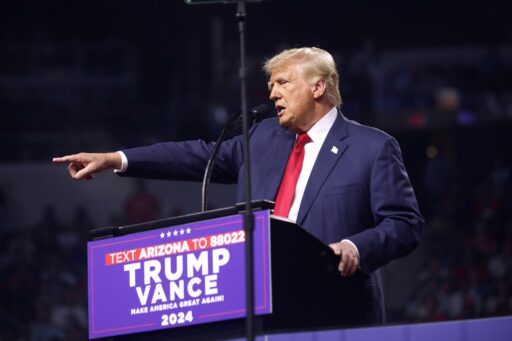Trump Reveals Plan To Lift Taxes On What?
Former President Donald Trump recently announced a bold initiative aimed at providing relief to Americans living overseas by eliminating the burdensome double taxation they currently face. In a statement shared with The Hill, Trump affirmed, “I support ending the double taxation of overseas Americans.”
For many expatriates, U.S. tax law creates a unique challenge: they are required to pay taxes both to the United States and to the country in which they reside. While there are some provisions designed to ease this dual financial obligation, such as the foreign earned income exclusion and the foreign housing exclusion, the situation remains complex. In contrast, many other countries exempt their citizens from taxation while living abroad, making Trump’s proposal particularly appealing to American citizens seeking a more favorable tax environment.
This new plan not only aims to reduce the tax burden on expatriates but could also encourage more affluent Americans to consider relocating overseas. The Wall Street Journal highlighted that simplifying the tax landscape for those living abroad could significantly impact their decisions about where to live and work.
While details of Trump’s international tax reforms are still forthcoming, it is clear that his vision aligns with a broader commitment to revising the tax code. Both Trump and Vice President Kamala Harris have presented a series of tax proposals in anticipation of major tax reform discussions expected next year. Harris’s agenda includes incentives for first-time homebuyers and support for new parents and small business startups.
In contrast, Trump’s platform includes eliminating taxes on tips and overtime pay, along with revisions to Social Security taxation. However, the fiscal implications of Trump’s proposals raise concerns. Estimates from the Center for American Progress indicate that extending provisions from his 2017 Tax Cuts and Jobs Act could add approximately $4 trillion to the national deficit over the next decade.
The Bipartisan Policy Center suggests even higher figures, projecting a potential $5 trillion increase. The Committee for a Responsible Federal Budget highlights a stark contrast between the two candidates’ plans, estimating Trump’s fiscal strategies could lead to a staggering $15.15 trillion in costs, while Harris’s might reach $8.1 trillion.
As policymakers grapple with rising budget deficits, intensified by pandemic relief measures, the call to address the national debt has never been more pressing. Trump’s initiative to eliminate double taxation for Americans abroad could be a crucial step in reforming a tax system that many see as overly burdensome and outdated. As we approach a pivotal moment in tax policy, the implications of these proposals will resonate deeply within the Republican agenda and among American citizens both at home and abroad.







